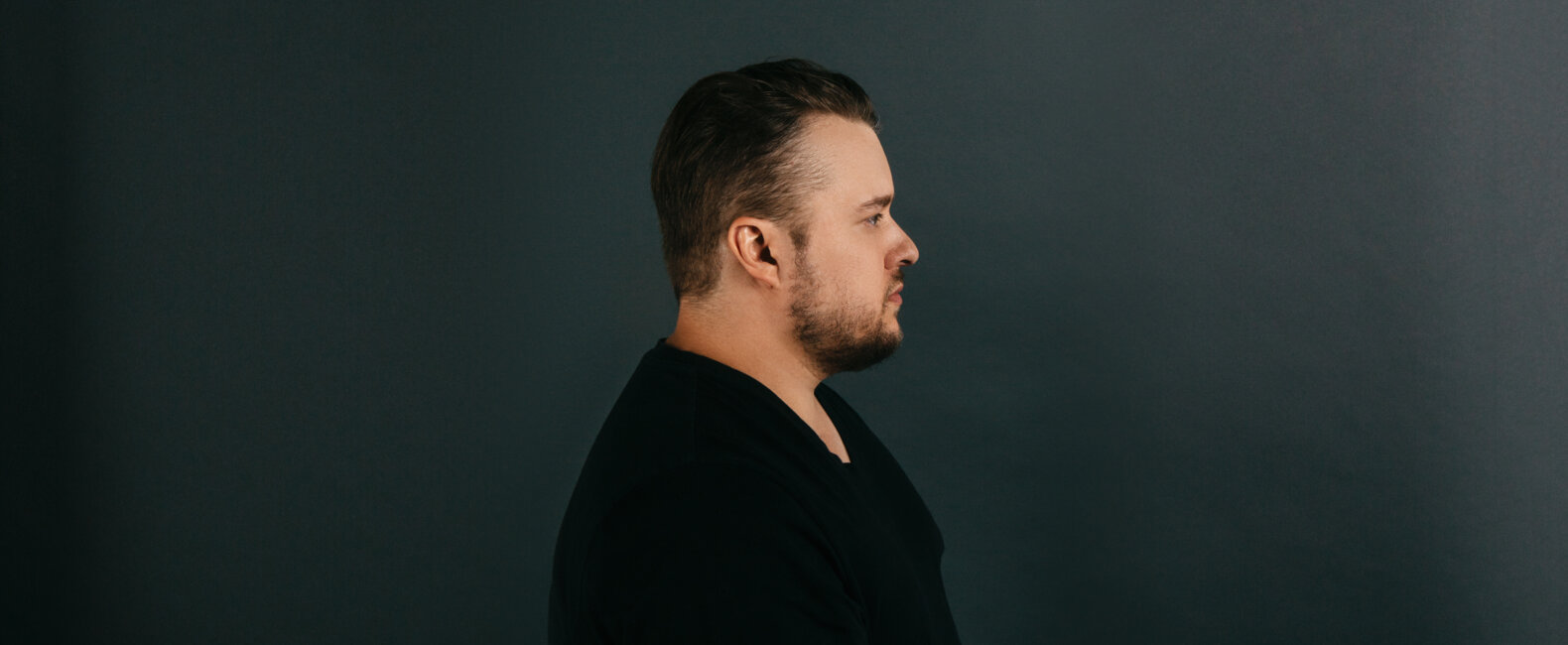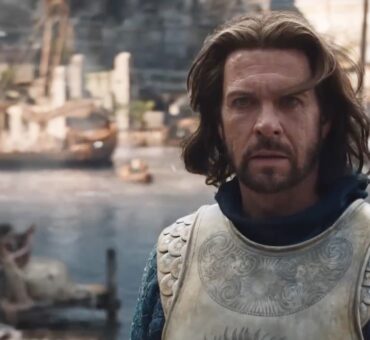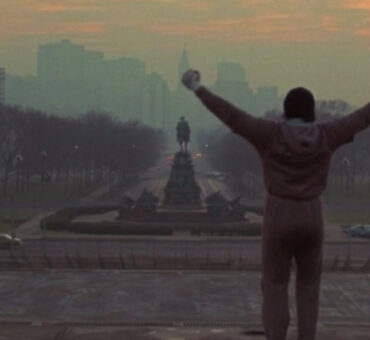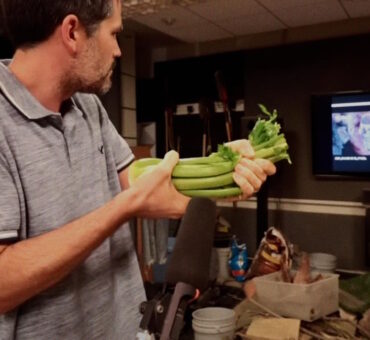Ryan’s story is a perfect example of what the Musicbed Film Fest is all about: giving artists the freedom to bring their ideas to life. In the same way that combining the right music with the right film results in a far more powerful emotional experience than either on their own, Ryan’s experience with Musicbed shows that combining a passion for creating music with the right platform results in a truly great artist.
Ryan Taubert was born to make music. And not just any music. Film music. Beginning at age 10, Ryan’s obsession with cinematic scores led him on a slow but steady journey from a small Texas town to a salaried position at Hillsong church in Australia and finally, this past year, to the hub of all things film: Los Angeles.
If you ever talk to Ryan, your first impression might be of a humble, soft-spoken southern transplant. But don’t let Ryan’s unassuming demeanor fool you. Under the surface is a dedicated and driven artist, constantly pushing his own boundaries and boundaries of his craft. Over the years, Ryan’s compositions have been used by the likes of Red Bull, Lincoln Motor Company, Everlast, and most recently in Variable’s mesmerizing and chaotic masterpiece, “Rocket Wars.”
Ryan isn’t messing around. “I knew early on that I was either going to be a film composer or I was going to live on the streets,” Ryan told us. “One of the two.”
A few years ago Ryan began licensing his tracks through Musicbed and the financial stability not only kept him off the streets but allowed him to start spending most of his time writing new songs, discovering new sounds, experimenting with new textures — making the music he wants to make. We’re proud to call him a Musicbed artist and to see his work featured in some of the amazing films currently being submitted to our first ever Musicbed Film Fest.
We recently talked with Ryan about his creative journey, his obsession with soundtracks, and his escape trajectory from a small Texas town.

I knew early on that I was either going to be a film composer or I was going to live on the streets,” Ryan told us. “One of the two.”
When did music first show up on your radar?
I was about ten years old when music in movies first captivated me. Obviously that’s an unusual thing for a ten year old to become obsessed with but I was fascinated with it. I remember my father bought me a little keyboard and after watching a movie I would see if I could remember the theme and play it back on my keyboard. I would get so annoyed when I couldn’t remember the chord progression or the melody.
What movies inspired you?
I remember I saw Jurassic Park in theaters and when I got home I tried to play the theme but couldn’t remember it at all. Then one day I was at a bowling alley playing pinball and it happened to be a Jurassic Park pinball machine. I started freaking out because I heard the theme coming from the machine. I pressed my ear up against it so I could remember the melody later when I got home. After that I was always asking for soundtracks for my birthday or for Christmas. Jurassic Park is kind of where it all started.
What kind of keyboard did your dad get you? Did it have a salsa beat built in?
Yes! It was a little bitty Casio keyboard. Then over the years, as my family saw my interest growing, they would buy me bigger and bigger keyboards. Music stuff is all I ever wanted. At some point in my teenage years my family got me this really nice Roland XP-80 keyboard with built-in 16 track recorder. That was my first experience multi-tracking, learning how to layer sounds. I used that keyboard for years. I even brought it with me when I moved to Australia in 2006. So I probably used that thing for ten years.
Most kids who get into music want to be in bands.
Being in a band fascinated me but I just couldn’t drop my passion for soundtracks. I knew since I was ten years old that I wanted to score films. Back then I didn’t know what all that entailed, I just knew that this was the type of music I wanted to create and that I wanted to create it for the rest of my life. I was never one of those people who question what they want to do with their life. I knew early on that I was either going to be a film composer or I was going to live on the streets. One of the two.
Do you still feel that way?
All or nothing.
So what happened after you decided you wanted to be a composer?
It was a little rough in the beginning. It was hard for me to put effort into schoolwork because I was so sidetracked with music. I tried college a couple times but dropped out. I even got a music scholarship but I couldn’t stand the music program. I absolutely hated it actually. I would sit in class and they would tell me I had to put this note here and that note there because those were the rules. But I didn’t want to follow the rules. That wasn’t my style. So I dropped out. I figured I was better off spending that money building a studio and doing real work. It was rough though because I was unsure of myself and I started thinking that maybe it wouldn’t be a bad idea to have a plan b.
What plan b options did you have in mind?
I’m pretty entrepreneurial at heart so it was probably going to be something with business. Get a business degree and see what happens. But I probably still wouldn’t have made it through because I was so consumed with writing music. It was a stressful time for my family, understandably so. After high school I really wasn’t doing much with myself. Luckily I ended up getting a job as a sound engineer at a local studio so that gave me a little bit of professional experience, but eventually it got to the point where I needed to make a drastic change. Coming from a small town, there weren’t many options for me there. There wasn’t much hope.
How small of a town?
Pretty small. The type of town where everybody knows each other. I think the population is around twelve thousand. And what all the guys do after they graduate high school and get a degree is they go work for one of the refineries. Basically that was going to be my future if I didn’t have music. And that’s definitely not what I wanted to do.
Did your dad work at the refinery?
Yeah.

Was getting out a long shot?
It didn’t feel like a long shot to me because by my late teenage years I felt so confident in my ability and in what I wanted to do. I truly felt like I was going to make it, if I could just get out of that town. So I decided to move to the other side of the world. Australia. I went there to attend this one-year creative arts college but ended up getting hired as a full-time composer. I guess this was around 2006. Hillsong church hired me as a composer and that’s when my career as a working, professional composer really began.
What did that feel like?
It was a dream come true. Not many people who aspire to work as composers actually make a living from it. The fact that I was getting paid a salary to compose music was amazing to me. I definitely wanted to keep moving forward, up and up and up, but working at Hillsong was a huge step. I stayed there 8 years. It gave me a sense of security. I was worried that if I moved back to the US I would end up flipping burgers. But at Hillsong I was composing new music every week. Music for promotions and documentaries and albums. And the practice of making tracks every week, working in so many different genres, grew me exponentially as a composer.
How many tracks did you make at Hillsong?
Probably over 200 tracks. Maybe more.
What kinds of things did you learn from making so much music?
I would say that one of the curses of being a composer — or being any sort of creative person — is the temptation to procrastinate just because you don’t feel inspired. That’s why things end up taking so long. It’s hard to force creativity. You sort of have to sneak up on it. But having deadlines helps, or at least it helped me, because then I didn’t have a choice. I had to get inspired otherwise the track wasn’t going to get finished. Sometimes deadlines would hit and the track was not necessarily everything I hoped it would be, but when is a track ever finished?
Even when I had hard times and questioned myself, I never questioned whether this is what I was supposed to be doing. It’s always been the one thing I can do literally all day for free.
That reminds me of a quote by poet Paul Valéry: “A poem is never finished, only abandoned.”
Totally. Eventually you just have to call it quits. These days I do a lot of my own projects and tracks, not associated with any project, and I can stretch the process out as long as I want. Some of them never get finished. Deadlines definitely help.
How would you find inspiration when you weren’t feeling inspired? What were your first steps?
A lot of times I would just start with textures. Sounds. I would try to figure out what this score was meant to sound like, what kind of world I was trying to create. The melody and the notes wouldn’t come until later in the process. After all those years at Hillsong, I have a library of thousands and thousands of sounds.
You left Hillsong pretty recently, right?
I always figured Australia was a temporary season for me. It was never meant to be permanent. I was content there but by my last year I knew my time was coming to an end. Actually it’s when I joined Musicbed and started seeing my tracks get licensed that I realized, Wow, maybe I can move back to the states and work for myself. Not have to flip burgers. Really, Musicbed is the only reason I’m able to live here in Los Angeles right now.
Is it pretty different making the tracks you want to make versus getting a salary to make what someone tells you to make?
It’s very different. I like it. I can make tracks and I’m not pressured by anyone else’s vision. I can make the music I want to make.
Did you ever have a moment when you doubted whether you were meant to be a composer?
Never. Even when I had hard times and questioned myself, I never questioned whether this is what I was supposed to be doing. It’s always been the one thing I can do literally all day for free.
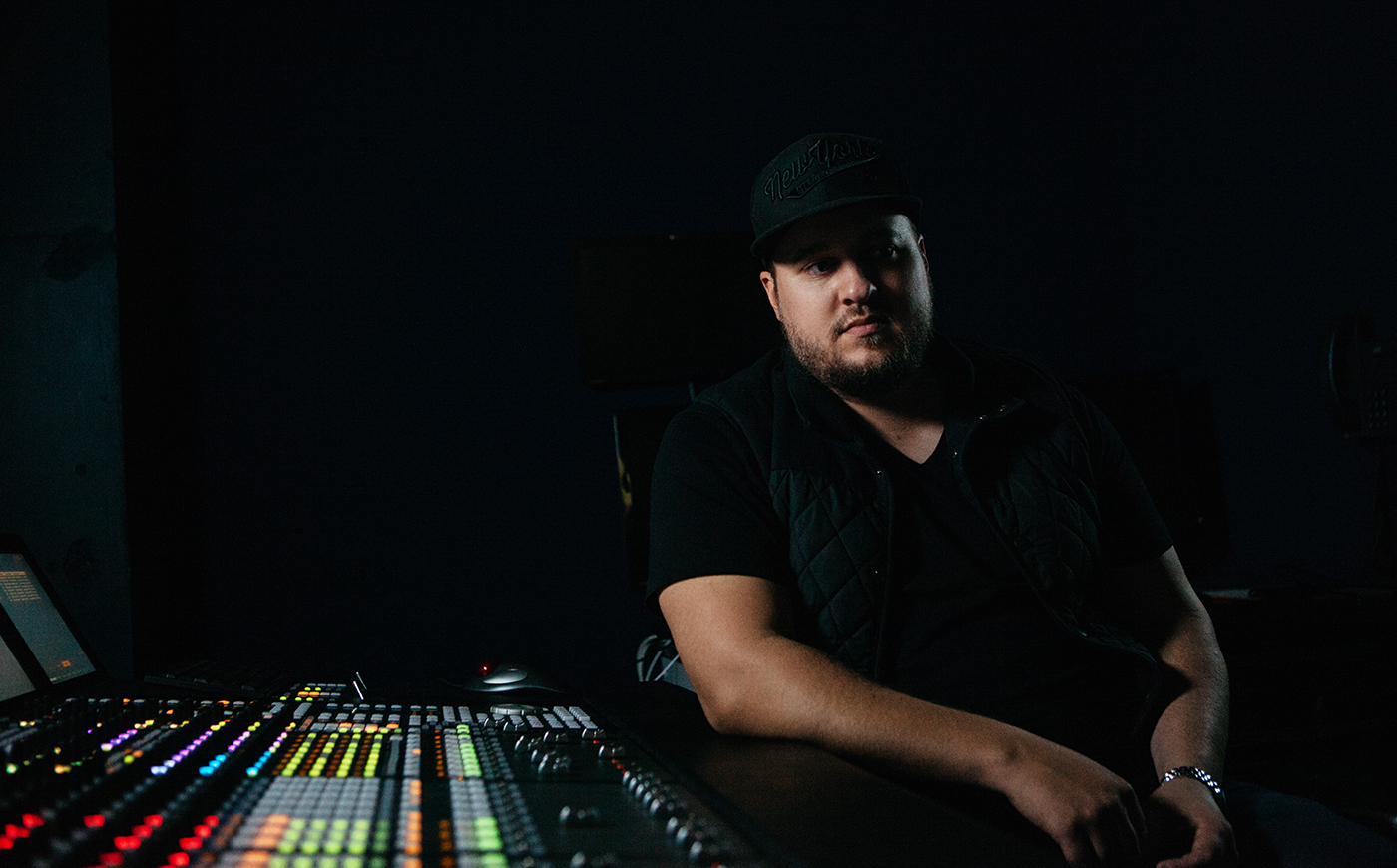
What’s it like going back home now? How does your family feel about your success?
It’s still hard for them to grasp the life I’m living now, not in a bad way, they absolutely love it, but it’s been an amazing journey I’ve been on. From Texas to Australia. From Australia to Los Angeles. None of my family has ever left Texas like that so it’s a pretty big deal for them.
Now that you can look back at it so many years later, why do you think you were so drawn to film music at such a young age?
I think film music always felt real to me. The difference between film scores and, say, pop music is that film music felt like real life. It felt like real human emotion. I don’t know how to explain it. The emotions felt authentic, and that’s why I fell in love with it. I could tell a story through film music. It wasn’t just about getting your head bobbing, it was about more than that. It was about supporting a whole narrative. I related to that. I relate to it still.















































































